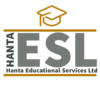Course Description
Today's students are digital natives, growing up in a world of instant information and highly interactive experiences. In STEM education, this presents a unique challenge. How do we capture students' attention? How do we foster deep learning when traditional methods might fall short? And how do we manage this and an increasing teacher’s workload?
Fortunately, digital tools and AI offer solutions to those who know how to use them properly and ethically. This intensive Erasmus+ KA1 course is focused on digital tools and AI for STEM teachers. The aim is to equip them with the skills to revolutionise their classrooms and effectively engage students.
Course Content
- Foundations and ethical implications of AI in STEM education
- AI-powered lesson planning and efficient content creation
- Generating varied problem sets, multi-modal content, and real-world scenarios
- Seamlessly integrating AI with essential digital tools for STEM teachers
- Actionable strategies to enhance student engagement through interactive STEM simulations and gamification
- Hands-on practice on using AI for assessment in STEM and streamlining feedback
- Reducing teacher workload with AI
Learning Outcomes
At the end of the course delegates will be able to:
- Understand fundamental AI concepts and their ethical implications within the STEM classroom
- Utilise generative AI for efficient lesson planning and curriculum design in STEM subjects
- Create diverse and engaging STEM content with AI and digital tools, including multi-modal materials and varied problem sets
- Integrate both AI-powered platforms and essential complementary digital tools for STEM to enhance teaching effectiveness
- Design interactive learning experiences, including AI-enhanced simulations and gamification in STEM education, to boost student engagement
- Leverage AI-powered assessment methods for efficient feedback and varied evaluation in STEM
- Identify future trends of AI in STEM fields and their implications for educational practice
Assessment and Certificates
Assessment of performance will be through delegate-completed portfolio of work. The final course certification for successful completion is a college-issued “Course Certificate of Completion”, for each module studied. In addition, where applicable, delegates will receive relevant EuroPass certificates.
![]()

